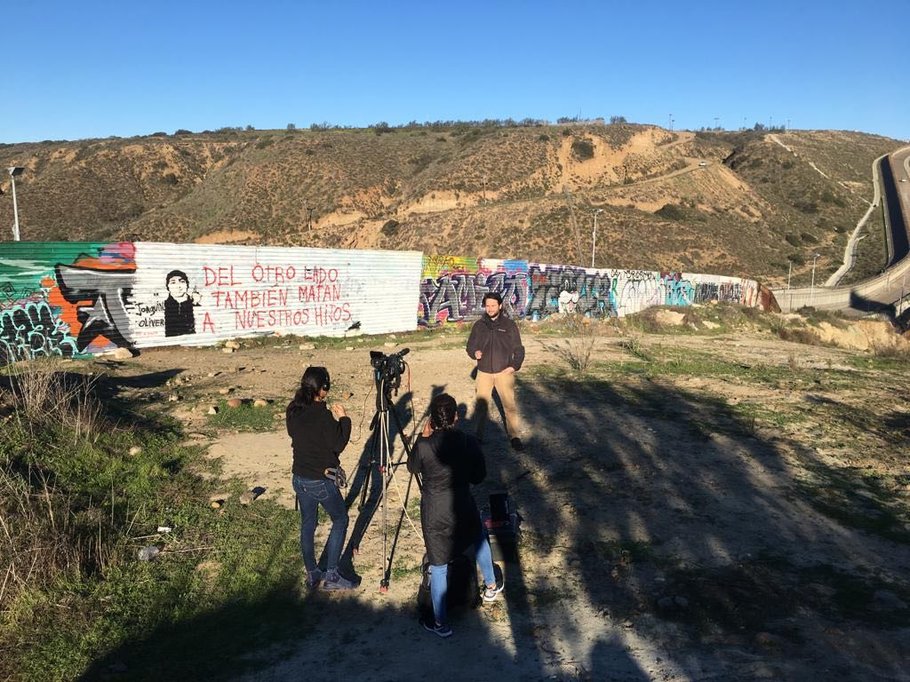Incident details
- Date of incident
- January 5, 2019
- Location
- Washington, District of Columbia
- Targets
- Manuel Rapalo (Freelance)
- Border point
- Washington, D.C.
- Target nationality
- US citizenship status of target
- U.S. citizen
- Denied entry?
- No
- Stopped previously?
- No
- Asked for device access?
- No
- Asked intrusive questions about work?
- Yes
Border Stop
- Equipment searched or seized
- Status of equipment
- Returned in full
- Search warrant obtained
- No
Equipment Search or Seizure

Journalists for Al-Jazeera report on Jan. 1 in Mexico while covering activities along the U.S.-Mexico border.
Manuel Rapalo, a freelance journalist, was stopped and pulled aside for additional screening measures while entering the United States via Washington, D.C. on Jan. 5, 2019. During the screening, Rapalo was questioned about his reporting along the U.S.-Mexico border and had his notebook searched.
Rapalo, an American citizen, covered the migrant caravan from Tijuana, Mexico, for Al-Jazeera. Every time he has re-entered the U.S. since then, he says, he has been pulled aside for a secondary screening, in what Rapalo calls his “new routine.”
Rapalo believes that a flag or marker has been placed on his travel documents because border officials have consistently stopped him only after scanning his passport. The Jan. 5 secondary screening was his first time to be pulled aside—he was also stopped for additional screening on Jan. 26 and Feb. 16, where the photos on his camera were searched and he was questioned about public records requests he intends to file.
“The first question was, ‘Why did you have trouble at the border?’” Rapalo said, referring to his reporting on the US-Mexico border. “I don’t know how he could have even known that. And then they asked me about my work along the border.”
According to Rapalo, the secondary screening began with about 30 minutes of questioning, then he was held for 1-2 hours while his luggage was searched.
“They go through my reporter notebooks, receipts, and ask me about the nature of my work, and how long I’ve been doing the job and whether I do fake news,” he told the U.S. Press Freedom Tracker. “I tell them to Google me. It seems like they are trying to get information out of me related to the border, like gathering intelligence on why the media is interested in the border.”
Rapalo said that while reporting from Tijuana on New Year’s Eve 2018, officials with Customs and Border Protection accused him and other journalists of exploiting migrants for stories and even “bringing them here from the shelters.”
“CBP tells people at the border hoping to cross that the journalists are taking advantage of them, and that they are there to make money off of them,” Rapalo said.
He said he responded to these accusations by stating that, “I can’t speak for everyone else, but I’m just here to watch and witness.”
CBP did not immediately respond to request for comment.
The U.S. Press Freedom Tracker catalogues press freedom violations in the United States. Email tips to [email protected].